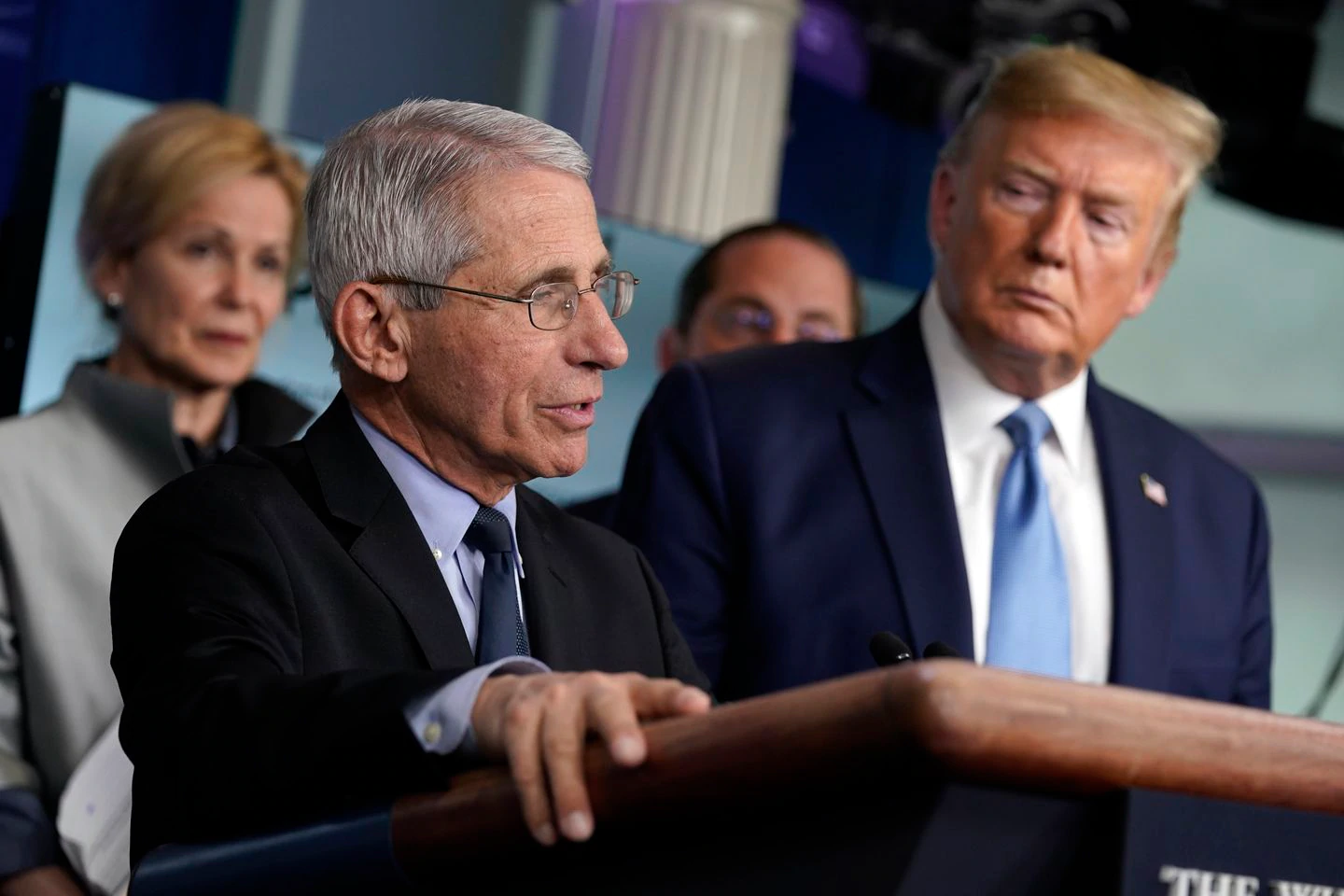The White House has been seeking to discredit Dr. Anthony Fauci, head of the National Institute of Allergy and Infectious Diseases (NIAID), for his dire warnings about the shortcoming in the ongoing coronavirus pandemic.
According to a top White House official, “Several White House officials are concerned about the number of times Dr. Fauci has been wrong on things.”
The official’s remark against Dr. Fauci was first reported by The Washington Post.
The official provided a list of past comments by Dr. Fauci in the early stages of the pandemic; for instance, Dr. Fauci said in January that COVID-19 was “not a major threat” and “not driven by asymptomatic carriers.” In March, Dr. Fauci commented, “People should not be walking around with masks.”
The White House is now criticizing Dr. Fauci for many of his past comments that were based on the available data at the time, which were also widely acknowledged by President Trump and other key members of the coronavirus task force.
On Sunday, US Surgeon General Dr. Jerome Adams told CBS News, “When you learn more, you change those recommendations. Our recommendations have changed.”
The officials have been attacking Dr. Fauci after the nation is experiencing surges in new cases, with Florida reporting more than 15,000 new cases on Sunday.
However, the White House declined to provide further comments on Dr. Fauci.
Last week, White House Press Secretary Kayleigh McEnany declined to comment on whether Trump still has confidence in Dr. Fauci.
The criticism has come amid signs of growing tensions between the president and Dr. Fauci.
Last week, Dr. Fauci said he had not seen Trump in person since June 2 and had not briefed him in person in at least two months.
Trump told Gray Television’s Greta Van Susteren that Dr. Fauci has made mistakes, adding, “I disagree with him.”
Dr. Admiral Brett Giroir, another key member of the White House coronavirus task force, told NBC that Dr. Fauci has not always been correct.
He said, “I respect Dr. Fauci a lot, but Dr. Fauci is not 100 percent right and he also doesn’t necessarily, he admits that, have the whole national interest in mind. He looks at it from a very narrow public health point of view.” Globally, the virus has affected more than 13 million and killed over 571,000 people. In the United States, public health officials have reported more than 3.4 million confirmed cases, with over 137,000 deaths.























